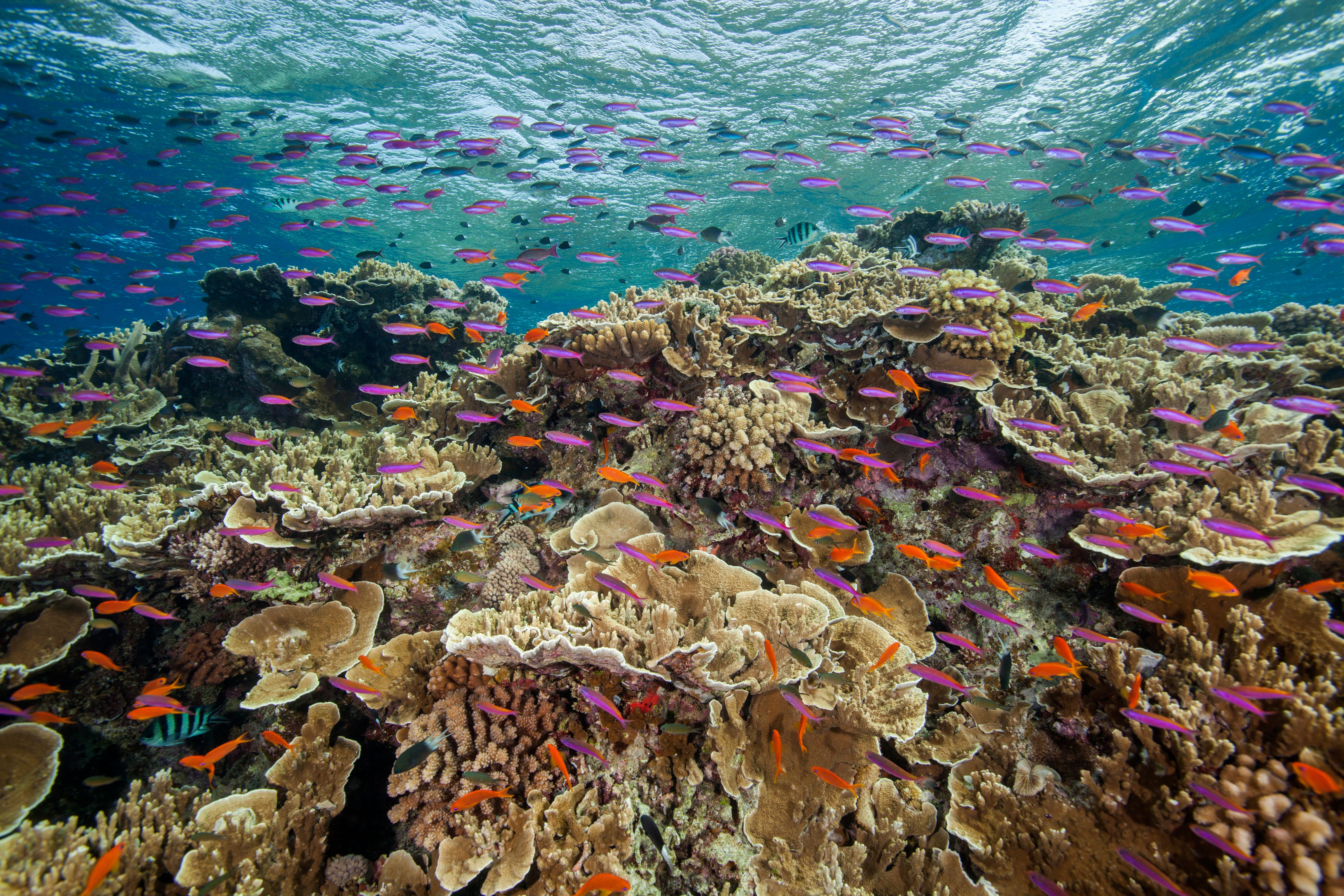Great Barrier Reef suffers widespread coral bleaching
An Australian government agency says the Great Barrier Reef is suffering widespread and severe coral bleaching due to high ocean temperatures two years after a mass bleaching event

Your support helps us to tell the story
From reproductive rights to climate change to Big Tech, The Independent is on the ground when the story is developing. Whether it's investigating the financials of Elon Musk's pro-Trump PAC or producing our latest documentary, 'The A Word', which shines a light on the American women fighting for reproductive rights, we know how important it is to parse out the facts from the messaging.
At such a critical moment in US history, we need reporters on the ground. Your donation allows us to keep sending journalists to speak to both sides of the story.
The Independent is trusted by Americans across the entire political spectrum. And unlike many other quality news outlets, we choose not to lock Americans out of our reporting and analysis with paywalls. We believe quality journalism should be available to everyone, paid for by those who can afford it.
Your support makes all the difference.Australia’s Great Barrier Reef is suffering widespread and severe coral bleaching due to high ocean temperatures two years after a mass bleaching event, a government agency said on Friday.
The report by the Great Barrier Reef Marine Authority, which manages the world’s largest coral reef ecosystem, comes three days before a United Nations delegation is due to assess whether the reef's World Heritage listing should be downgraded due to the ravages of climate change.
“Weather patterns over the next few weeks will be critical in determining the overall extent and severity of coral bleaching across the Marine Park,” the authority said.
“Bleaching has been detected across the Marine Park — it is widespread but variable, across multiple regions, ranging in impact from minor to severe,” the authority added.
The reef has suffered significantly from coral bleaching caused by unusually warm ocean temperatures in 2016, 2017 and 2020. The previous bleaching damaged two-thirds of the coral.
The environmental group Greenpeace said the severe and widespread coral bleaching suffered during a La Niña weather pattern that is associated with cooler Pacific Ocean temperatures was evidence of the Australian government’s failure to protect the coral from the impacts of climate change.
“This is a sure sign that climate change caused by burning coal, oil and gas is threatening the very existence of our reef,” Greenpeace Australia Pacific Climate Impacts Campaigner Martin Zavan said in a statement.
In July last year, Australia garnered enough international support to defer an attempt by UNESCO, the United Nations’ cultural organization, to downgrade the reef’s World Heritage status to “in danger“ because of damage caused by climate change.
But the question will be back on the World Heritage Committee’s agenda at its next annual meeting in June.
A U.N. delegation will inspect the reef’s health next week.